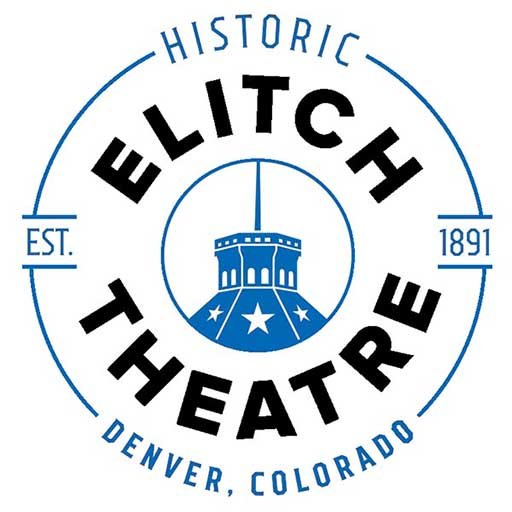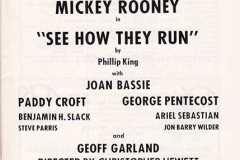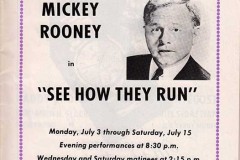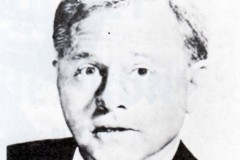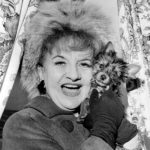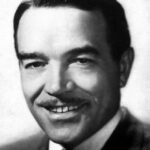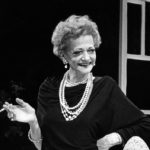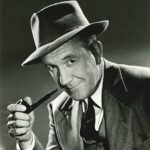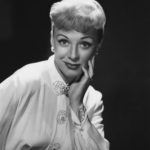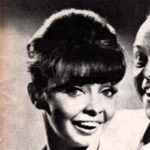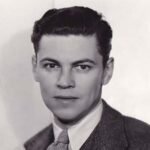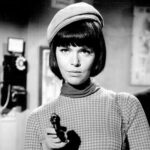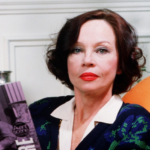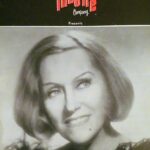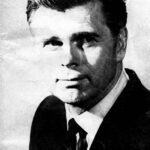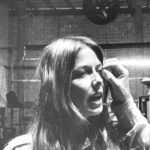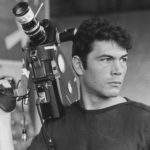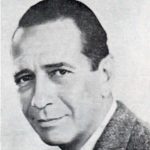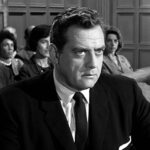Laurence Olivier once said he considered Rooney “the best there has ever been”. Clarence Brown, who directed him in two of his earliest dramatic roles in National Velvet and The Human Comedy, said Rooney was “the closest thing to a genius” with whom he had ever worked. He won a Golden Globe Award in 1982 and an Emmy Award in the same year for the title role in a television movie Bill and was awarded the Academy Honorary Award in 1982. [wikipedia]
The title of the play Three Goats and a Blanket is taken from an ancient Greek custom of a husband dissolving a marriage and buying his freedom by giving his wife three goats and a blanket. These humble beginnings have been abandoned in favor of alimony, the subject of the play. After the show, Rooney made “a curtain speech likening the plot to Iris personal history (of many marriages), (and stated) ‘You’ll see an exhibit of my wedding cakes in the lobby on the way out.'”
However, it was on the way into the Theatre that patrons were caught off guard. Rooney greeted them as they entered the Theatre lobby and was personally peddling souvenir copies of a booklet of his long theatrical life entitled Photo Memories. In his curtain call speech, he closed by inviting the patrons who had purchased copies of his booklet to meet him for his autograph and to reminisce with him near the picture gallery in the lobby.
The play was written for Mickey Rooney by television writers Bo Hillard and Woody Kling, whose credits include many of the Jackie Gleason shows and other television comedies. Unfortunately, the review of the play may be something that Rooney may wish to exclude from future reminiscing.
(In his performance of the play’s character), Rooney is a walking hangover. He is the leftover taste of the onion in yesterday’s hamburger.
He is – in short – rather gross. Rooney’s face changes shape as easily as a sopping wet, scrunched up washrag. He is all physical and facial mannerisms and grotesqueries; and he has no hesitancy about turning directly to the audience for an aside or two.
Christopher Kirkland described Mickey Rooney as one of the most interesting people ever to play Elitch. Rooney loved the races.
During matinees, he would say every word of the show as fast as he could, so he could get out in time to bet the end of the card at Centennial Race frack. He’d run out 15 to 20 minutes ahead of the scheduled curtain, shouting, “I said every word. I said every word!”
[Borrillo, Theodore A. Denver’s Historic Elitch Theatre: A nostalgic journey, 2012. pp 294-295.]
Mickey Rooney’s Bio from the 1972 See How They Run Program:
MICKEY ROONEY made his vaudeville debut at age two (in a routine with his parents, the late Joe Youle and Nell Carter) and his film debut at age three. Faithful Rooney watchers remember the Mickey McGuire two reelers, when the five-year old talent-loaded moppet impersonated the cigar-chewing, derby-sporting “Fontaine Fox,” comic strip character. Those who tuned in on “The Mick” later on remember all the fun in the Andy Hardy series.
Rooney has made more than 100 feature films. For what once was called a three-handkerchief picture, Boys’ Town tops anything else in the 30’s. Captains Courageous was also pretty special. In a more innocent age, National Velvet was a box office champ, with Rooney topcast with the young Elizabeth Taylor. He was an ideal Huckleberry Finn; winningly “Saroyanesque” in The Human Comedy; O’Neill’s adolescent to the last growing pain in “Ah, Wilderness!”; and as captivating a “Puck” as ever cavorted in A Midsummer Night’s Dream. In 1939, Rooney received a special Oscar from the Academy. He was nominated for an Oscar the following year for his performance in Babes in Arms and again in 1943 for his performance in The Human Comedy with a supporting actor nomination in 1956 for The Bold and the Brave. He has been nominated for television’s coveted Emmy four times; for his title portrayal of The Comedian, for Pinocchio, for the one-man show Eddie and for Somebody’s Waiting on the Dick Powell Theatre. His enormous popularity is underscored by the Theatre Owners of America naming him box-office champion for three years running, 1938-40.
In 1944, as a member of the Armed Forces, he was assigned to the famous Jeep Show, and until his discharge in 1946, he traveled 150,000 miles, entertaining more than 2,000,000 soldiers. During the Korean conflict, Mickey took his own troupe. of entertainers to Korea and Japan.
The versatile star has scored too, as a director, having helmed an episode of Jean Arthur’s TV series and unofficially served as director of his own TV series, Mickey. One of the most in-demand TV guest stars, he frequently guests on every important Hollywood and New York based shows, including memorable appearances with Red
Skelton, Danny Thomas, Dean Martin and Lucille Ball.
A talented musician, musician, composer and member of ASCAP, “The Mick” plays nearly every musical instrument in the band, and has written several pop and classical songs. In recent seasons, Rooney was a sensational hit on the Los Angeles stage as star of A Funny Thing Happened on the Way to the Forum, which he took to Houston for another great success. He was co-starred in Ambush Bay for United Artists as well as Vittorio Gassman in The Devil in Love for Warner Brothers.
[1972 See How They Run program at Historic Elitch Theatre]
Seasons at the Theatre
- 1972
- 1974
Productions/Roles:
- 1972 – See How They Run as Sgt. Major Vinton
- 1974 – Three Goats and a Blanket.
Notable Roles, Awards, and Other Work:
- Two of his earliest dramatic roles were in National Velvet and The Human Comedy.
- He won a Golden Globe Award in 1982 and an Emmy Award in the same year for the title role in a television movie Bill and was awarded the Academy Honorary Award in 1982.
